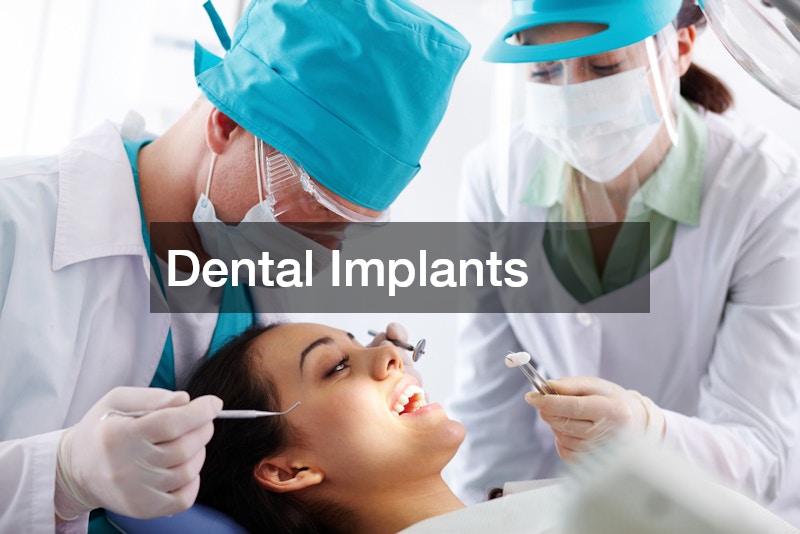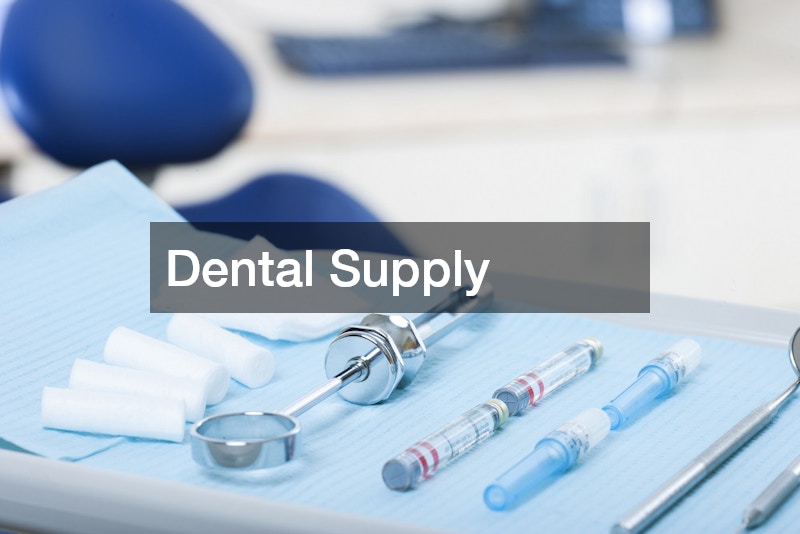
In the ever-evolving world of healthcare, routine dental care remains an integral aspect of ensuring overall health and well-being. Key components of routine dental care include a vast array of services and specialties that contribute to maintaining not only oral health but also enhancing aesthetic appeal and confidence. Regular dental visits, preventive care, and timely treatments help in avoiding severe dental issues while promoting long-term oral hygiene. In this article, we explore ten significant aspects of routine dental care, each playing a vital role in contributing to a patient’s overall dental health, lifestyle, and confidence.
From advanced dental procedures like dental implants and root canals to supporting services such as medical transportation and inventory management, each element is crucial in delivering comprehensive dental care. Furthermore, we delve into the importance of teeth whitening and facial aesthetics in enhancing one’s confidence, while the role of holistic doctors and confidence coaches reflects the growing emphasis on a holistic approach to dental health. Additionally, we discuss the critical support provided by dentists and the dental supply industry, ensuring that all operational and procedural needs are met efficiently. Understanding these facets of dental care can help individuals make informed choices about their oral health, ultimately leading to a better quality of life.
1. Dental Implants

Dental implants have revolutionized the way missing teeth are replaced, providing a permanent and aesthetically pleasing alternative to dentures and bridges. The process involves surgically placing a titanium post into the jawbone, which acts as a sturdy foundation for an artificial tooth. This aspect of routine dental care not only restores functionality in terms of chewing and speaking but also significantly boosts self-esteem by mimicking the look and feel of natural teeth.
Understanding the intricacies of dental implants is essential for both patients and dentists. The success of dental implants largely depends on the bone health where the implant is placed, the patient’s oral hygiene habits, and the skill of the dentist performing the procedure. Regular follow-ups are a crucial part of routine dental care post-implantation, ensuring the implant integrates well with the jawbone and stands the test of time.
The introduction of dental implants reflects the advanced capabilities of routine dental care in improving lives. Not only do they provide functional benefits, but they also enhance facial aesthetics by maintaining the structure and form of the face, which can otherwise be compromised due to missing teeth. As a result, patients enjoy an enriched quality of life and heightened confidence, further exemplifying the broad scope of routine dental practices.
2. Teeth Whitening
Teeth whitening has become one of the most sought-after cosmetic procedures in routine dental care, catering to the growing desire for a perfect, bright smile. This process encompasses various methods such as in-office bleaching, take-home whitening kits, and over-the-counter products, each varying in effectiveness, cost, and safety. The pursuit of white teeth is often fueled by the impacts of lifestyle choices, from drinking coffee and red wine to smoking, which can all contribute to enamel stains and discoloration.
For many, routine dental care goes beyond health and extends to personal satisfaction and confidence. Professional teeth whitening offers more controlled and noticeable results compared to conventional home remedies. A crucial aspect of routine dental consultations involves discussing suitable whitening techniques tailored to individual needs, ensuring both safety and effectiveness.
While teeth whitening can significantly boost self-confidence, it is vital to consult with a dentist to assess the health of the teeth and gums before proceeding. This ensures that any underlying dental issues are addressed and that the chosen whitening process is suitable. Furthermore, maintaining results post-whitening is an ongoing part of routine dental maintenance, involving lifestyle adjustments and regular dental checkups to prolong the effects.
3. Root Canals
The term “root canal” often incites fear due to preconceived notions of pain and discomfort, yet it is a pivotal aspect of routine dental care aimed at saving teeth that might otherwise be lost. A root canal involves removing infected or damaged pulp within a tooth, cleaning, disinfecting, and then sealing it to prevent future infection. Despite its daunting reputation, a root canal is typically a straightforward and pain-relief-focused procedure.
Root canals address one of the core functions of routine dental care: preserving natural teeth. By saving a tooth from extraction, root canals sustain oral health, functionality, and aesthetics. Advances in dental technology and anesthesia have made root canals more accessible and less intimidating, ensuring minimal discomfort is experienced during the procedure.
Routine dental care post-root canal treatment is essential for recovery and to prevent further complications. Patients are advised to follow their dentist’s post-operative care instructions diligently, which usually involve over-the-counter pain relief, proper oral hygiene, and regular follow-up appointments. This continued care underscores the importance of routine dental visits in maintaining long-term oral health.
4. Facial Aesthetics

Incorporating facial aesthetics into routine dental care demonstrates how dentistry has evolved beyond functional needs to address cosmetic desires. Facial aesthetic procedures complement dental work, enhancing overall appearance and boosting self-confidence. Common procedures include Botox, dermal fillers, and skin rejuvenation treatments, which can be performed alongside dental services for a holistic approach to aesthetics.
For many patients, the inclusion of facial aesthetics in routine dental care allows for a convenient, one-stop approach to enhancing their overall look. This trend reflects a growing recognition of the interconnectedness of dental health and facial aesthetics, encouraging more patients to explore these combined services during routine dental visits.
Facial aesthetics in dental care extend beyond simple cosmetic changes to significantly impact a person’s self-image and interactions. As such, dentists skilled in these services can provide comprehensive plans that improve not just oral health but the overall facial presentation, thereby increasing patient satisfaction and confidence in their appearance.
5. Medical Transportation Service
The role of a medical transportation service in routine dental care often gets overlooked, yet it is essential for ensuring that all patients have access to necessary dental services. This is particularly crucial for individuals with mobility issues, seniors, and those living in remote areas. By providing reliable transportation, more people can adhere to their routine dental appointments consistently, thereby maintaining better oral health.
Routine dental care depends on patient accessibility and regular attendance at appointments, highlighting the importance of convenient transportation. Dental clinics often collaborate with medical transportation companies to provide patients with seamless, hassle-free travel to and from dental appointments. This integration into routine dental care demonstrates a commitment to patient welfare and systemic healthcare access.
Medical transportation services support patient retention and satisfaction by alleviating the stress and logistics of commuting to dental facilities. As a result, they enhance the efficacy of routine dental care plans, enabling patients to receive timely dental interventions, follow-ups, and preventive care without the burden of transportation challenges.
6. Dentists
Dentists are at the forefront of delivering routine dental care, playing a critical role in diagnosing, treating, and preventing oral health issues. Their expertise spans a range of services from general maintenance to advanced restorative and cosmetic procedures, ensuring comprehensive care for every patient. Routine check-ups with dentists facilitate early detection and management of dental problems, reducing the risk of complicated interventions later.
The effectiveness of routine dental care heavily relies on the dentist’s skills, experience, and ability to tailor treatments according to individual needs. Continuous education is a hallmark of dentistry, ensuring that practitioners remain updated with the latest advancements and techniques. Consequently, patients receive the highest quality of routine dental care that encompasses both preventive and corrective measures.
Dentists also play a crucial educational role in routine dental care, empowering patients with the knowledge needed to maintain oral health independently. Through personalized advice and guidance on proper oral hygiene practices, dietary recommendations, and lifestyle habits, dentists ensure that patients are proactive participants in their oral health journey.
7. Dental Supply

The dental supply industry is the backbone of routine dental care, providing essential materials and equipment necessary for everyday dental operations. From consumables like gloves and masks to technological tools such as digital imaging devices and CAD/CAM systems, reliable dental supplies are crucial for maintaining seamless and effective clinical performance.
Quality dental supplies guarantee safety, efficiency, and the successful execution of a wide range of dental procedures. As part of routine dental care, clinics must establish strong partnerships with reputable suppliers to ensure a steady stream of high-standard, innovative products that support patient care and clinical advancements.
The integration of modern dental supplies into routine dental care highlights the industry’s commitment to elevating patient care experiences. With an ever-evolving array of products and technologies at their disposal, dental professionals can offer enhanced diagnostics, treatment precision, and procedural comfort, ultimately benefiting both patients and clinics alike.
8. Holistic Doctors
Holistic doctors have become integral to routine dental care, focusing on the connections between oral health and overall well-being. This comprehensive approach considers the physical, emotional, and nutritional factors that influence dental health, advocating for a synchronized treatment plan that addresses a patient’s entire health profile.
The role of holistic doctors in routine dental care involves evaluating how systemic health issues may manifest in the oral cavity and vice versa. By engaging with holistic doctors, patients receive personalized care that often includes dietary adjustments, stress management techniques, and the use of natural or minimally invasive treatments.
A holistic approach to routine dental care emphasizes prevention and long-term health benefits. It encourages patients to adopt healthier lifestyles, supports natural healing processes, and lessens dependency on invasive treatments. Such integrative care ensures that patients achieve optimal health outcomes, reflected in both oral and systemic well-being.
9. Medical Inventory Software
Medical inventory software is a pivotal component of routine dental care, allowing dental practices to manage and track their supplies and equipment efficiently. This software streamlines administrative tasks, ensures accurate stock levels, and reduces the likelihood of errors, thus supporting the smooth operation of dental clinics.
The implementation of medical inventory software in routine dental care enhances operational efficiency and provides insights into supply chain management. By optimizing inventory processes, dental practices can minimize waste, control spending, and ensure timely replenishment of essential items, all of which contribute to more reliable patient care.
Incorporating advanced medical inventory software showcases the commitment of routine dental care providers to adopt technology that supports clinical excellence. The resulting improvements in productivity and cost-effectiveness allow dental professionals to focus on what matters most: providing exceptional care and ensuring patient satisfaction.
10. Women’s Confidence Coach

A womens confidence coach can play an unexpected yet impactful role in routine dental care by working with patients to build self-esteem and address issues related to dental and facial aesthetics. This emotional support and guidance help patients overcome anxieties associated with dental visits and embrace treatments that enhance their natural beauty.
Confidence coaching in the context of routine dental care provides tools and strategies to help women navigate societal pressures regarding appearances. By fostering a positive self-image, a confidence coach empowers women to pursue dental procedures such as teeth whitening and facial aesthetics, ultimately helping them realize their full potential in personal and professional spaces.
Integrating the services of a women’s confidence coach in routine dental care highlights the importance of addressing the mental and emotional aspects of health. The synergy between dental treatments and confidence coaching results in holistic patient care where physical changes are complemented by increased self-assurance and inner well-being.
In conclusion, routine dental care encompasses a diverse range of services and specialties that extend beyond traditional oral health maintenance. Understanding these facets of dental care can help individuals make informed choices about their oral health, ultimately leading to a better quality of life. By integrating dental implants, teeth whitening, root canals, and more into standard practice, routine dental care provides comprehensive solutions designed to enhance both health and confidence. The involvement of medical transportation services and the ongoing education provided by dentists showcase the commitment to accessible and informed patient care. Meanwhile, the inclusion of facial aesthetics and confidence coaching reflects the industry’s response to evolving patient demands for holistic and personalized care. Ultimately, routine dental care not only safeguards oral health but also contributes to a positive lifestyle and heightened self-esteem.